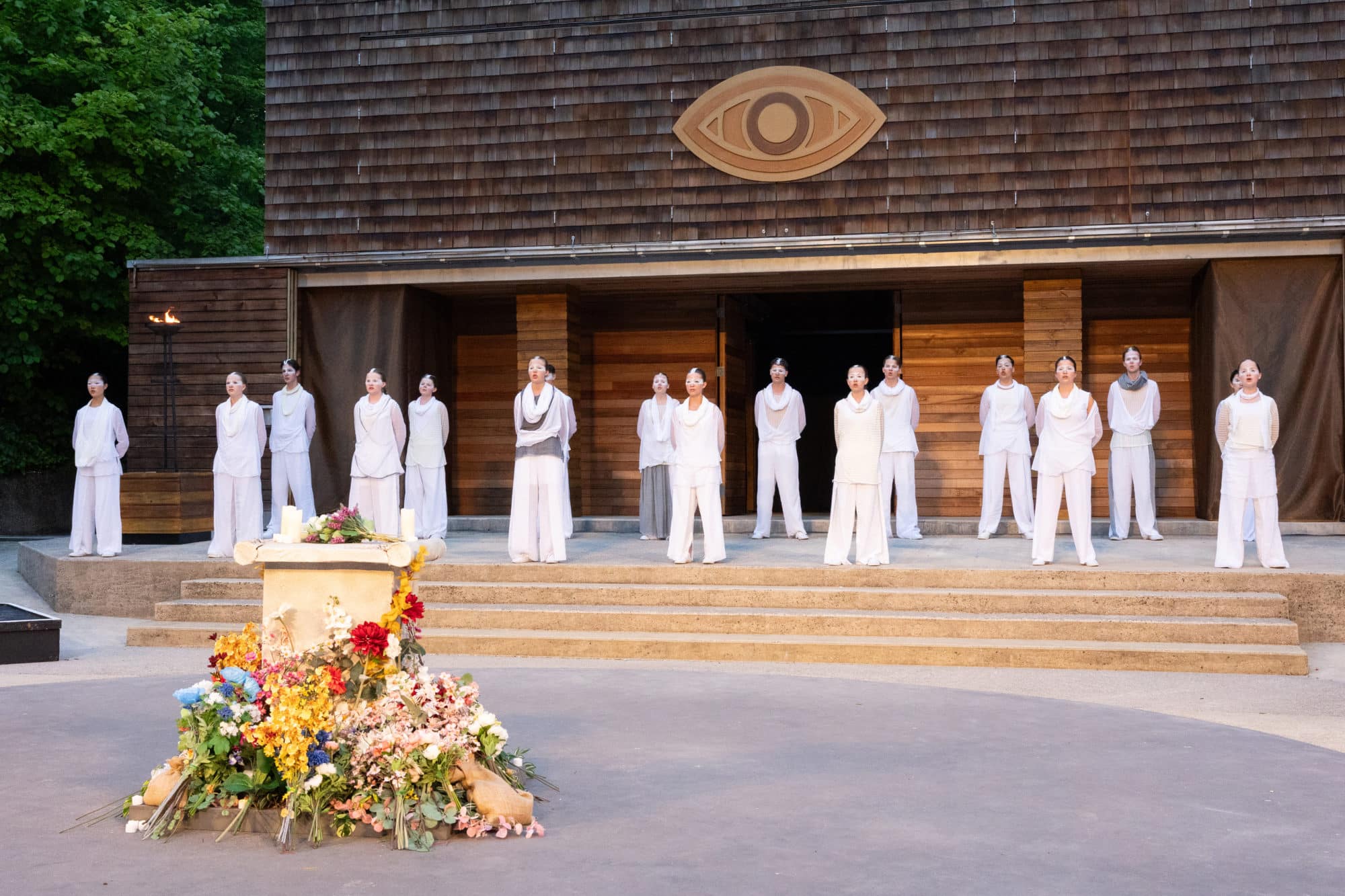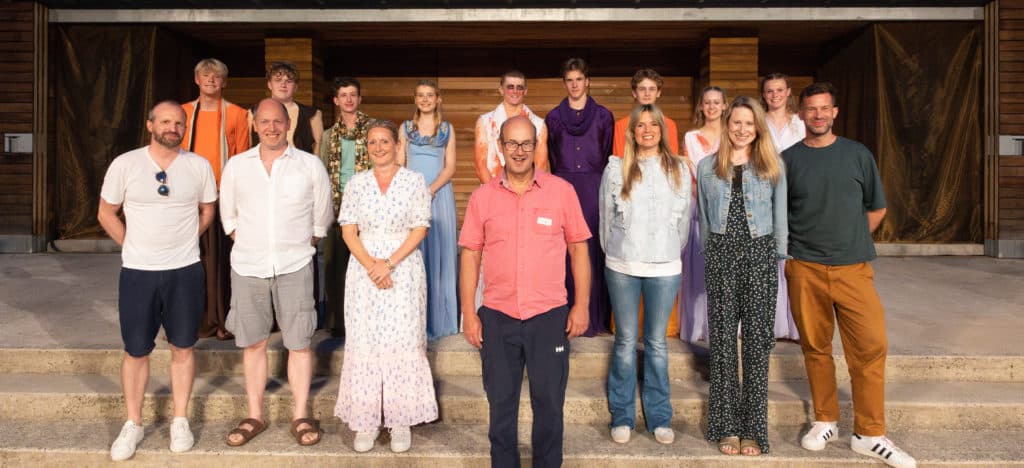The only sad thing about the Bradfield Play is that when watching one, one knows it will be three years before one can see anything so good anywhere in England.
1928: JOHN MASEFIELD, POET LAUREATE 1930-1967
Long, loud and richly deserved applause rang out as the final notes of the original score sounded, the pupils took their bows and the lights, both artificial and natural, went down on Greeker following the final performance of the 41st Bradfield Greek Play.
Over 1700 people attended the four performances of Oedipus The King and witnessed the forging of a new tradition; the first hybrid production in which the Chorus sung and chanted in the traditional Classical Greek language while the principal cast spoke their lines in modern English.
It is fair to say there was some trepidation moving into the new hybrid format. As one would expect, this decision was made after hours of discussion and consideration with all number of parties, but ultimately it was felt that to keep the Greek Play at the heart of Bradfield Drama and to have relevance to our current pupils, it was a move worth making.
From the very beginning of each performance as the smell of incense and sounds of the specially composed score greeted the audience, to the very end as the blinded Oedipus exited and Creon spared one final look back towards the theatre, the production was a roaring success.
The pupils were excellent. Harry (A), combined the extremes of human achievement and degradation to disastrous effect and commanded the stage as the confident King yet drew gasps from the audience as he stumbled around the Orchestra, blinded and blood-soaked in the final act. Sophia (M) as Queen Jocasta and Jackson (A) as Creon excelled in support. Luca (H) put in a powerful performance as the blind prophet Tiresias as did both Ginny (M) and Amelie (LM) who shared the part of the Theban Messenger, emotionally delivering the news of the Queen’s demise and the King’s self-inflicted wounds. Delivering moments of comedy and sincerity in equal measure were Josh (D) as the Priest, Theo (G) as the Corinthian Messenger and George (G) and Tom (H) as the Shepherd.
It is not easy performing a play of this scale in your native tongue and to perform lines in an entirely new language is no mean feat. The twenty-strong chorus spent numerous hours learning Ancient Greek and, what felt like an insurmountable task at times for many of them, was realised with aplomb. They were superb.
The Don Taylor translation, which was used for the non- sung sections of the 2023 performance, was selected by the Director, Nic Saunders, who, having taught Taylor’s celebrated Royal National Theatre translation of Antigone for many years, felt it achieved the delicate balance of remaining faithful to the spirit and poetry of the original text whilst also being accessible for modern audiences. As with the text, in striving to stay faithful to the spirit of the historic production many of the traditions of the Bradfield Greek Play remained: the costuming, set design and the familiar triumvirate of playwrights of Euripides-Sophocles-Aeschylus.
With The Persians of Aeschylus performed in 2017, followed by Euripides’ Alcestis two years later, the choice cycled back to Sophocles and was the fourth iteration of Oedipus The King. Our pupils followed in the footsteps of the casts of 1937, 1979 and 1997, and members of the casts of the latter two productions were in attendance to enjoy the new tradition. It was wonderful to see them conversing with their successors following each performance, reminiscing about their experiences while praising the current pupils’ approach and delivery of the characters.
In 1928 John Masefield, who would go on to become Poet Laureate, wrote: “The only sad thing about the Bradfield Play is that when watching one, one knows it will be three years before one can see anything so good anywhere in England.” His hyperbolic sentiment is unequivocally untrue, nevertheless the Bradfield community is excited by what is to come in 2026 when it will be time for the 42nd Bradfield Greek Play.






